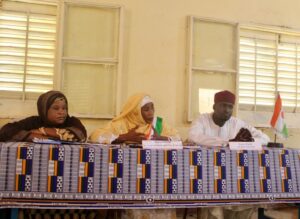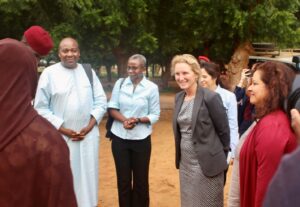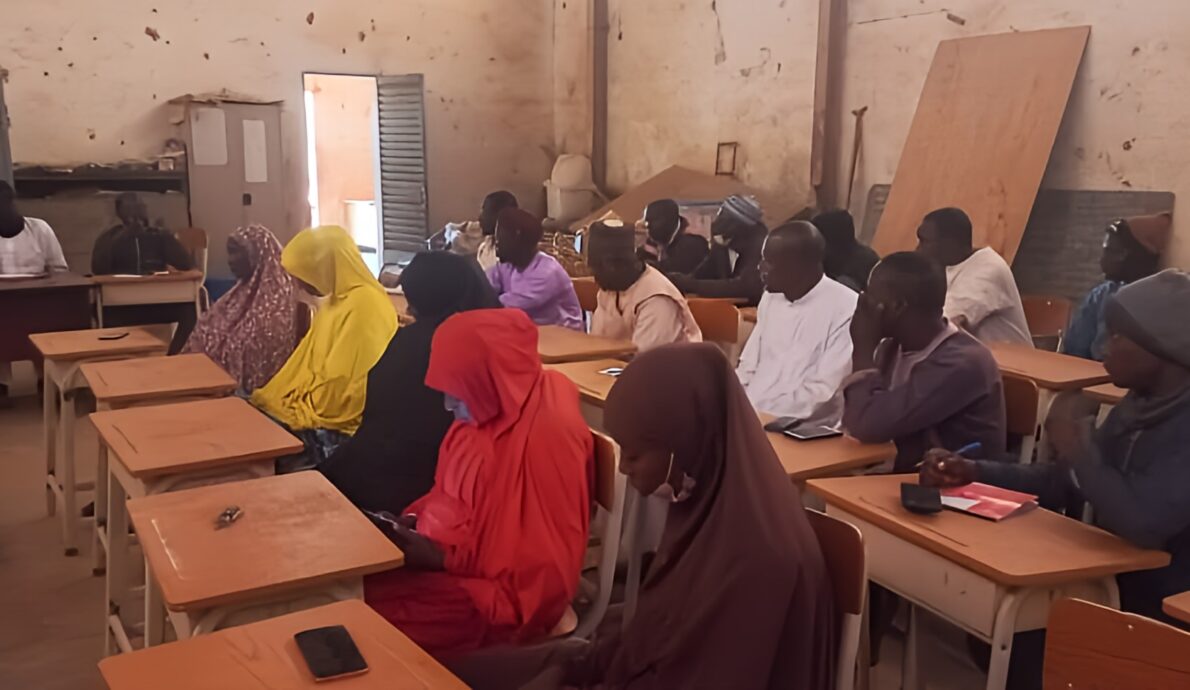The mayor of Kollo, Salamatou Souley, welcomed a USAID delegation, led by Deputy Administrator Isobel Coleman, to her commune on October 1, 2022. Members of the Kollo citizen monitoring committee and stakeholders joined the mayor and USAID representatives for the occasion.

Salamatou Souley (center), mayor of Kollo, explains the results achieved with the support of Jagoranci.
Kollo, located in Niger’s Tillabery region, is one of 19 partner communes where Jagoranci—USAID’s Resilient Governance in Niger Activity—supports improved local governance and service delivery. Jagoranci supported the commune in a participatory self-evaluation of its performance, provided training on roles and responsibilities of communal actors, and helped strengthen the commune’s citizen monitoring committee and its consultation framework. At the request of the commune, Jagoranci also supported a dialogue on land management that helped develop a policy to prevent conflicts related to access to land and land ownership.
When asked to mention some of the positive results of Jagoranci’s support, Souley indicated that, “when the [newly elected] communal council was officially established, we did not know the roles of the municipal council members or of the mayor and his deputies. Council members would come to the commune every morning to control what the mayor was doing. This blocked the proper functioning of the commune and led to misunderstandings. A council member threatened me and said they were going to remove me from office. Thank God, Jagoranci, in collaboration with the [ministry], trained us all together—council members, mayor, prefect, civil society actors—on our respective roles. Since then, the council is functioning properly.”
Following these remarks, Harouna Aissatou Djibo, the deputy mayor of Kollo and president of the association of women-elected officials in the department, requested USAID’s support to train elected women from other communes on their roles and responsibilities. Participants agreed that this type of training is particularly important for women-elected officials as it provides them with knowledge and skills necessary to affirm their leadership in the male-dominated government.
Learn more about the project here.





